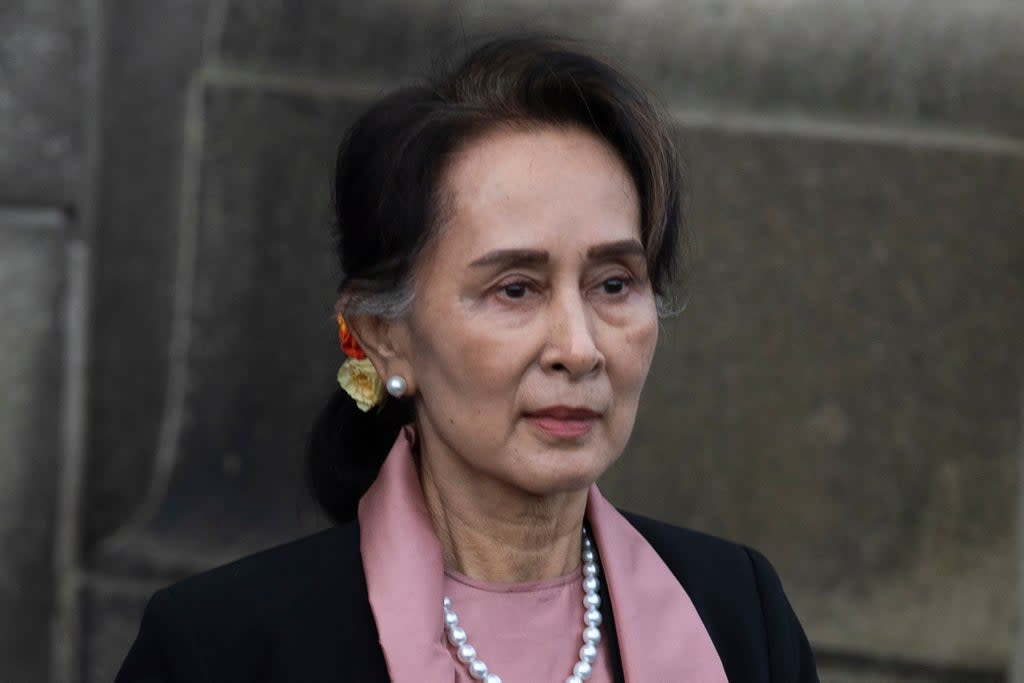Aung San Suu Kyi jailed for four more years on walkie-talkie and Covid charges

Myanmar’s ousted leader Aung San Suu Kyi was convicted of three criminal charges and sentenced to four more years in prison on Monday for illegally importing and possessing walkie-talkies and violating coronavirus restrictions, an official said.
Ms Suu Kyi was handed down a two-year sentence for breaching the export-import law and one year for having a set of signal jammers. The two sentences will run concurrently, sources familiar with the proceedings told Reuters.
She was also sentenced to two years on another charge of breaching the natural disaster management law for violating coronavirus restrictions.
The charge under the export-import law of having illegally imported the walkies-talkies was the first filed against the 76-year-old and used as a justification for her continued detention. In the following months, a second charge of illegally possessing the radios was brought against her.
The radios were seized from the gate of her residence and the barracks of her bodyguards during a raid on 1 February last year after her arrest during the military coup.
The Nobel laureate's lawyers argued that the radios were not in her personal possession and were used for her security.
She was earlier on 6 December convicted on two other charges and sentenced to four years in prison, a term that was later halved by the leader of the country’s military junta General Min Aung Hlaing.
According to local media, she is being held by the junta at an unknown location where she would serve her sentence.
Ms Suu Kyi is on trial in nearly a dozen cases that reportedly carry a maximum sentence of over 100 years in prison. Critics have accused the junta of bringing trumped-up charges against the ousted leader to end her political career and justify their own actions in removing her from office.
Her trial held in the capital Naypyitaw has been closed to the media and the leader's lawyers have been prohibited from communicating with the media as well.
The military took over the country by force in February last year, ousting Ms Suu Kyi’s democratically-elected government, and has since presided over a brutal and deadly crackdown on pro-democracy protests.
The junta’s bid to throttle dissent with crackdowns has led to the death of over 1,400 civilians in less than a year, monitoring groups say. Some groups have taken up arms against the military, in a country with a long history of sustained civil strife.
The ousted leader’s previous sentence was met with an international outcry, including the US and UK demanding her immediate release.
The junta, however, claimed that she was sentenced according to the nation’s laws and that her imprisonment showed no one was “above the law”.


